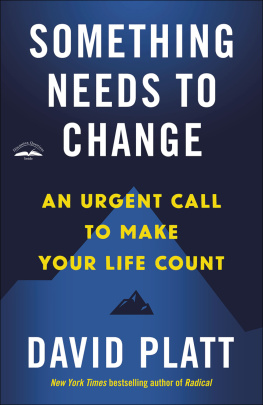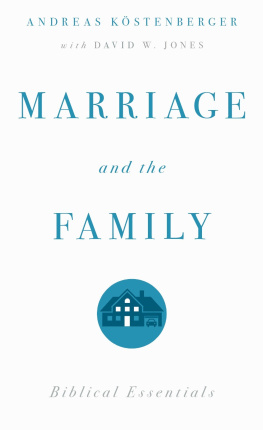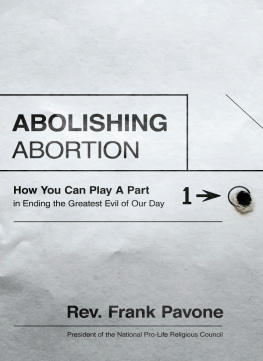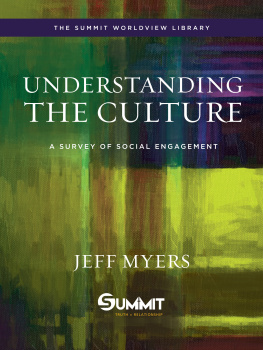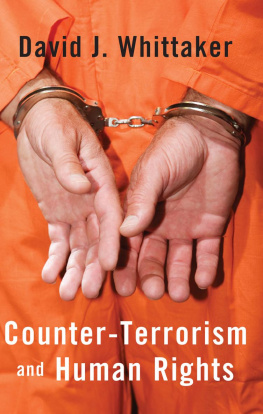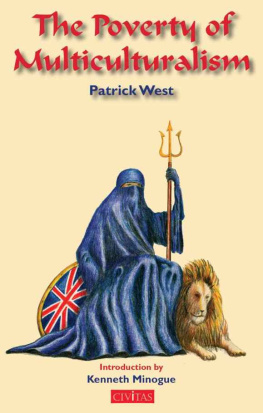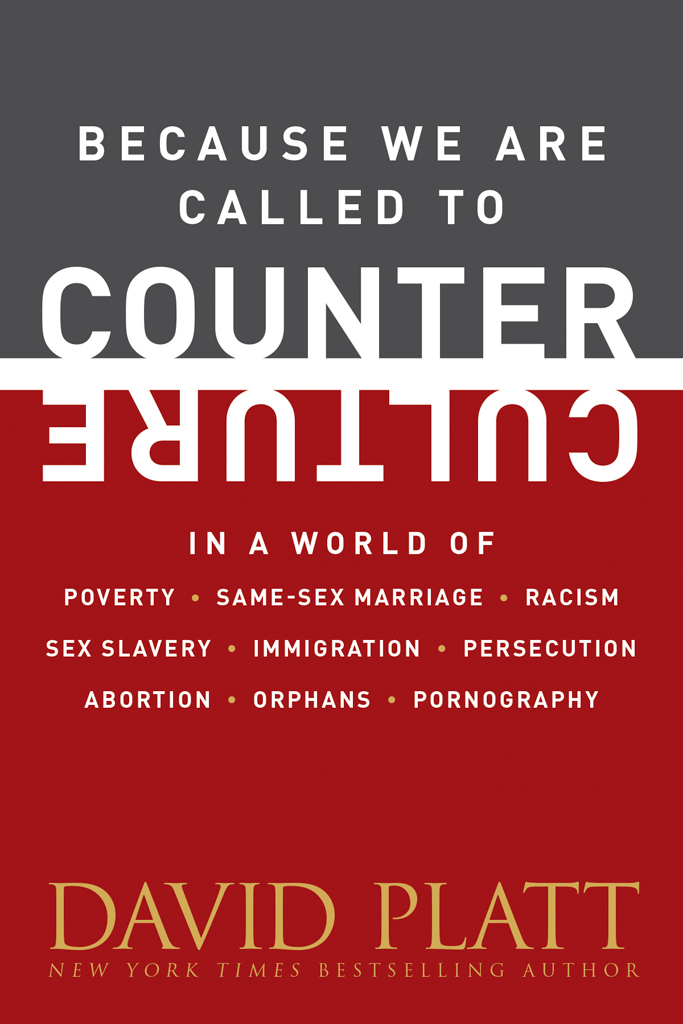Visit Tyndale online at www.tyndale.com.
Copyright 2015 by David Platt. All rights reserved.
Designed by Dean H. Renninger
ISBN 978-1-4964-0533-3 (sampler). Order full product under ISBN 978-1-4143-7329-4.
COUNTERING CULTURE
Imagine standing at the height of all the earth and seeing the depth of human poverty.
Journey with me to the middle of the Himalayan mountains, where not long ago I met men and women striving for survival. Half the children in these particular villages die before their eighth birthday. Many dont make it to their first. Meet Radha, a mom who would have fourteen kids if twelve of them hadnt died before adulthood. Meet Kunsing, a disabled child who spent the first twelve years of his life chained in a barn because his family thought he was cursed. Meet Chimie, a toddler whose brother and sister died when he was two months old, leading his mom to commit suicide and his dad to pass him around desperately to any woman in the village who could provide nourishment.
Just as shocking as those you meet are those you dont. Some of the villages in these mountains are virtually devoid of young girls between the ages of five and fifteen. Their parents were persuaded by the promises of a better life for their daughters, so they sent them off with men who turned out to be traffickers. Most of these girls live to see their eighth birthday, but by their sixteenth birthday they are forced to have sex with thousands of customers. They will never see their families again.
When we meet people, hear stories, and see faces of injustice like this around the world, it is altogether right for us to respond with compassion, conviction, and courage. Compassion overwhelms us because we care deeply for children, parents, and families whose lives are filled with pain and suffering. Conviction overtakes us, for every one of us knows instinctively that stories like these should not be so. It is not right for half the children in these Himalayan villages to die before their eighth birthday. It is not fair for children born with disabilities to be chained in barns for their entire lives. It is unjust for pimps to deceive parents into selling their precious daughters as sex slaves. Ultimately, such compassion and conviction fuel courage courage to do something, anything, for the sake of Radha, Kunsing, Chimie, these girls, their parents, their villages, and countless other children, women, and men like them around the world.
In light of these global realities, I am greatly encouraged when I see such compassion, conviction, and courage in the church today. As I listen to the way contemporary Christians talk (especially, though not exclusively, younger evangelicals), I perceive fierce opposition to injustice regarding the poor, the orphan, and the enslaved. I observe increased awareness of social issues: a plethora of books written, conferences organized, and movements started that revolve around fighting hunger, alleviating poverty, and ending sex trafficking. In the middle of it all, I sense deep dissatisfaction with indifference in the church. We simply arent content with a church that turns a blind eye and a deaf ear to the realities of social injustice in the world. We want our lives and the church to count for social justice.
Yet while Im deeply encouraged by the expressed zeal of so many Christians for certain social issues, Im profoundly concerned by the lack of zeal among these same Christians (especially, though again not exclusively, younger evangelicals) for other social issues. On popular issues like poverty and slavery, where Christians are likely to be applauded for our social action, we are quick to stand up and speak out. Yet on controversial issues like homosexuality and abortion, where Christians are likely to be criticized for our involvement, we are content to sit down and stay quiet. Its as if weve decided to pick and choose which social issues well contest and which well concede. And our picking and choosing normally revolves around what is most comfortable and least costly for us in our culture.
If you ask practically any popular Christian leader in the public square to make a statement on poverty, sex trafficking, or the orphan crisis, that leader will gladly, boldly, and clearly share his or her convictions. However, if you ask the same Christian leader in the same public setting to make a statement on homosexuality or abortion, that leader will respond with either nervous hesitancy or virtual heresy, if he or she responds at all. Thats not the issue Im concerned with, the leader might say. My focus is on this other issue, and thats what I want to speak about.
The practical effect of this is evident across the contemporary Christian landscape. All sorts of younger evangelicals write blogs, take pictures, send tweets, and attend conferences where they fight to alleviate poverty and end slavery. Other evangelicals care for foster children in the United States and adopt orphans from around the world. Many of these efforts are good, and we should continue in them. What is problematic, however, is when these same evangelicals stay silent in conversations about more culturally controversial issues like abortion or so-called same-sex marriage. Those issues are not my concern, they think. Im more comfortable talking about other issues.
But what if Christ commands us to make these issues our concern? And what if Christs call in our lives is not to comfort in our culture? What if Christ in us actually compels us to counter our culture? Not to quietly sit and watch evolving cultural trends and not to subtly shift our views amid changing cultural tides, but to courageously share and show our convictions through what we say and how we live, even (or especially) when these convictions contradict the popular positions of our day. And to do all of this not with conceited minds or calloused hearts, but with the humble compassion of Christ on constant display in everything we say and do.
Isnt this, after all, the essence of what it means to follow Christ in the first place? If anyone would come after me, let him deny himself and take up his cross daily and follow me (Luke 9:23). Talk about countercultural. In a world where everything revolves around yourself protect yourself, promote yourself, comfort yourself, and take care of yourself Jesus says, Crucify yourself. Put aside all self-preservation in order to live for Gods glorification, no matter what that means for you in the culture around you.
And isnt this, after all, the main issue in any culture? Maybe better stated, isnt he the main issue in any culture? What if the main issue in our culture today is not poverty or sex trafficking, homosexuality or abortion? What if the main issue is


